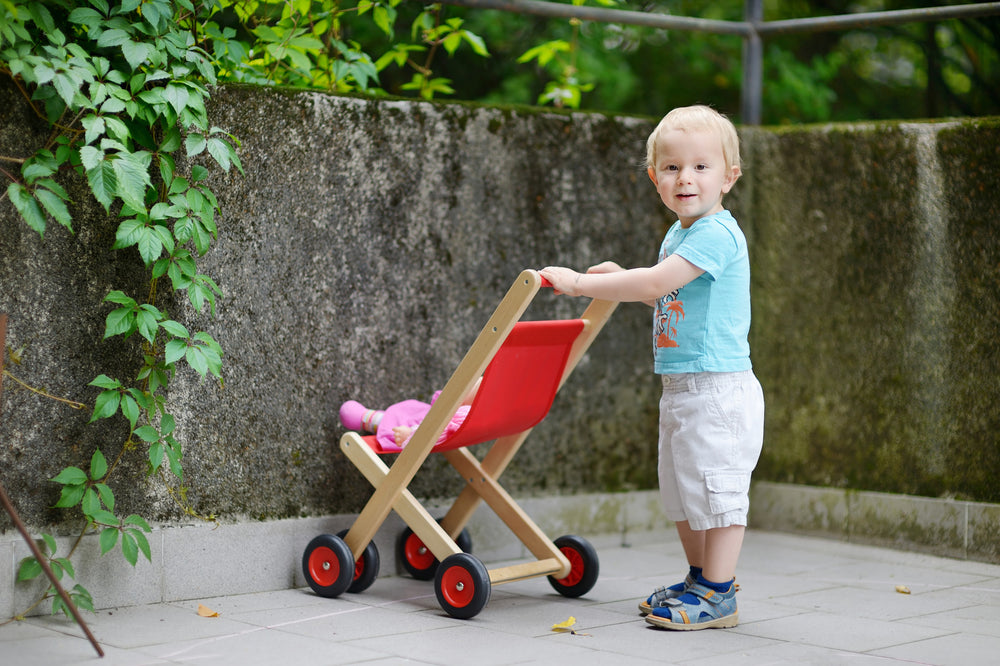That’s My Baby: How dolls promote emotional development in both sexes


Today’s savvy parents are perfectly aware that it is no longer politically correct to label toys as “just for boys” or “just for girls.” The ever-present parenting guides in print and online have done a thorough job influencing popular opinion to such a degree that even retail giant Target has eliminated store labels that distinguish between boys’ and girls’ toys.
Certainly, the toys our children play with have an impact on their overall development. But why? What is it that makes it important for girls to have access to trucks and boys to have access to dolls?
Dolls in particular have a fascinating influence on children. Without any prompting, the smallest child is drawn to models of babies of all shapes and sizes. He knows immediately that he wants to cuddle it; she promptly falls in love and insists on taking it everywhere.
Regardless of gender, children are captivated by other children, and their attraction to dolls is an extension of this. In addition, we know that play is the method by which children learn about the world around them, and practice the skills they will need as they grow up. Playing with dolls actually provides an opportunity to learn important emotional skills.
Early on, a doll (or stuffed animal) will function as a security item for a child. Being held by a parent clearly makes a child feel safe and secure, and when a parent is not available, the next best thing is to hold something else to replicate the feeling. As the child grows a bit older, he may begin to treat the doll as his own baby, copying the words and gestures of his parents, both to enjoy them again himself, and to share the feeling of being loved with “his baby.”
Taking care of a doll strengthens caring and nurturing skills, which are important building blocks of empathy. Successful adults use empathy in both their social relationships and their business relationships; understanding the motivation and emotions of others is an essential skill.
Dolls can also play an important role when a child needs to work through strong emotions. Just as social workers encourage children to describe difficult situations using dolls, children will actually do this on their own as they play. A child may replicate an upsetting situation at school using dolls, repeating the words that she heard that were hurtful, and giving herself another chance to respond to them. This kind of play can give children a crucial measure of control over their lives.
Many a parent has overheard his child speaking to a doll using words that the parent recently said (“No dessert until you clean your room, Billy!”). Taking the opposite role (playing the parent to the doll) helps a child understand different perspectives, which is tremendously important later in life.
Of course, not every child will love dolls throughout her entire childhood. As children grow, they gravitate toward the subjects that interest them, whether it be reading or building or running or creating imaginary worlds. Regardless, it is important to offer all types of toys early on. Some children may transfer their affection from baby dolls to toy soldiers, but the skills they learn are the same.
The impact dolls have on emotional development occurs early in childhood. Making dolls available to young children is a sound strategy to help them acquire and expand the essential skills of caring, nurturing, and understanding.
Recent Articles
-
Playful Primer 10 Must-Have Toys for Your Next Backyard BBQ
Summer is just around the corner and we're ready for it! From backyard BBQs to neighborhood park outings, we've discovered...
read more -
Playful Primer Tips & Toys to Support Group Play Experiences
Catching a glimpse of children happily engaged in pretend play is like witnessing pure magic. Ever wonder how closely you...
read more -
Playful Primer 5 Ways to Strengthen the Bond Between Siblings
“I’ll take care of the bike. You take care of each other.” This is what I said to my children...
read more
